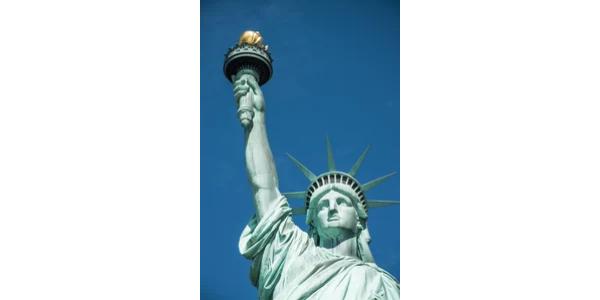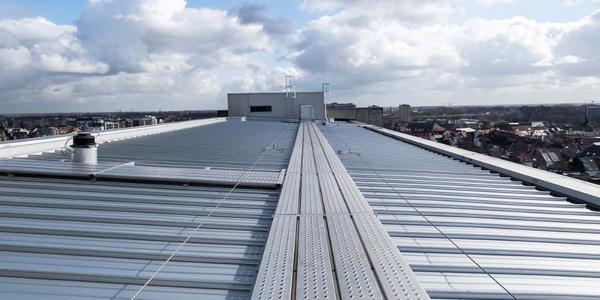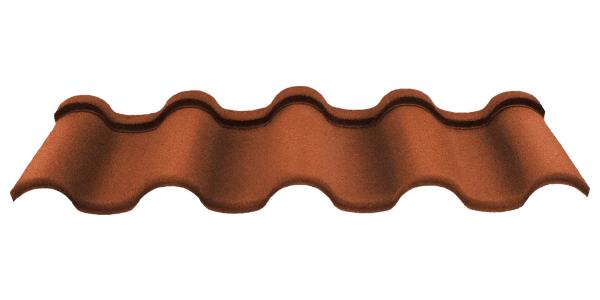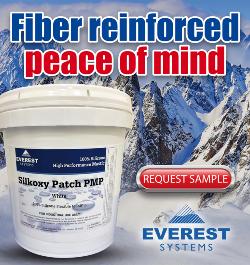How metal roofing stands up to rust and corrosion

By DECRA Metal Roofing.
A comprehensive look at the different types of metal roofing and their resistance levels.
Home and building owners looking to invest in a metal roof might express concerns about the potential risks of rust and corrosion. This is a common worry many contractors hear from customers, one that is important to address to help buyers make an educated decision.
One thing home and building owners should understand is that not all metal roofs rust. Depending on the metal type, each material has a different resistance level to rusting and corrosion.
To help choose the best metal roof for every roofing need, this guide from DECRA Metal Roofing covers everything you need to know about rust-resistant metal roofing:
Rust versus corrosion: What’s the difference?
Rust and corrosion are sometimes used interchangeably, but they’re not the same thing. It’s important to distinguish between the two when choosing a rust-resistant metal roof.
Rust is like a cavity in your tooth. Just like a cavity is specific to teeth, rust only occurs in iron and iron alloys, such as steel. When iron or iron alloys come in contact with moisture and oxygen, they undergo a chemical reaction that results in a flaky, reddish-brown compound we call rust (also known as iron oxide). Similar to how a cavity weakens a tooth, rust makes iron and iron alloys brittle and weak.
Corrosion is like the aging process for metals. As we age, our skin develops wrinkles and our hair turns gray. Similarly, metals can “age” and change their appearance over time due to chemical reactions with the environment. This process is known as corrosion.
While rust is a form of corrosion, it only occurs in iron and iron alloys. Corrosion can happen to other types of metals.
For example, copper doesn't rust, but it does corrode over time to form a protective green layer known as patina, as seen on the Statue of Liberty.

Rust resistance: A comparison of metal roofing materials
Here’s how different types of metal roofing withstand rust and corrosion.
Steel is an iron alloy made primarily of iron, carbon and small amounts of other elements. Think of iron as a basic jar of playdough. You can change the strength, flexibility and color of the playdough by incorporating other ingredients into the jar. That's what an iron alloy is. For example, if you add carbon to iron, you get steel. If you add chromium, you get stainless steel.
Most steel roofs are coated with either a layer of zinc (galvanized) or a mixture of zinc, aluminum, and silicon (Galvalume) to prevent rust.
Galvanized steel is widely used in applications where rust resistance is required, such as roofing. The steel is coated with zinc to prevent the underlying steel from rusting. However, over time the zinc may wear away, leaving the steel exposed and vulnerable to rust.
Galvalume steel combines a zinc and aluminum coating to achieve superior protection against rust. If you reside in a coastal region, selecting a metal roof with Galvalume steel is recommended. The aluminum in Galvalume also provides better heat reflectivity to enhance energy efficiency.
Before exploring other types of metal roofing, it's important to note that during the installation of steel roofs, contractors may cut steel panels on the roof itself. This can lead to metal shavings falling onto the roof surface. If these shavings are not properly cleaned up, homeowners may think that the roof itself is rusting when in fact, it's just the residual metal dust. Make sure that your roofing contractor removes any leftover debris or metal shavings to prevent this issue.
Aluminum roofs are inherently resistant to rust. Aluminum forms a protective layer when exposed to moisture, known as an aluminum oxide layer, that prevents further oxidation. However, it can be more expensive than steel, and its appearance may not be ideal for residential properties.

Copper roofs are also inherently resistant to rust. But they do undergo a similar process in the form of corrosion. When copper is exposed to the elements over time, it reacts with the oxygen in the air to form a layer of copper oxide, which is a dull, dark brown color. Then, as it continues to be exposed to the elements, this layer slowly transforms into copper carbonate, which is the green patina that is often associated with the Statue of Liberty.
Zinc roofs also develop a protective layer when exposed to the elements. But unlike copper, the patina formed on zinc is self-healing, meaning it can repair itself if it's scratched or damaged. It also serves as a barrier against further corrosion.
Although both copper and zinc roofs are highly durable, their high costs and unique aesthetic may not align with most budgets or architectural designs.
So, what is the best type of metal roofing for resisting rust and corrosion?
The formula for rust-resistant metal roofing
Aluminum and zinc are two of the best metals for preventing rust and corrosion. They perform even better when combined in an alloy coating.
This is why DECRA Metal Roofing panels are manufactured from cold-rolled high-grade carbon steel with a continuous hot-dip process aluminum-zinc coating applied to both sides of the sheet.

The DECRA anti-corrosion alloy formula for rust resistance and corrosion resistance is: 55% aluminum, 43.4% zinc and 1.6% silicon.
The zinc in the alloy coating initially protects the steel but will gradually corrode away over time. DECRA engineers have prepared for this inevitable event, commonly known as “sacrificial coating.”
That’s where the 55% aluminum content in the alloy comes into play.
Once the zinc coating is “sacrificed” after decades of exposure to the elements, the aluminum component of the metallic alloy coating still stands strong. The high aluminum content ensures that a barrier against corrosion remains in effect for a substantially longer period of time.
That leaves us with the small but important 1.6% silicon content in DECRA’s corrosion-resistant formula. The silicon component provides superior alloy coating adhesion. This helps the coating remain firmly in place while the high-grade carbon steel is rolled, stamped or bent.
The result of the DECRA 55% aluminum, 43.4% zinc, 1.6% silicon combination and high-grade steel is a metal roofing system that is resistant to rust and corrosion.
Rust-resistant DECRA metal roofing
DECRA Metal Roofing products are engineered to withstand nearly anything Mother Nature has to offer–including rust, hurricanes, hail and fire.
Manufactured at our state-of-the-art facility in Corona, California, DECRA’s line of stone-coated metal roofing products are tested above and beyond the requirements to ensure the quality that DECRA is known for is present in each and every panel we produce.
Ready to see and feel the DECRA difference? Order a free sample.
Original article and photo source: DECRA Metal Roofing.
Learn more about DECRA Metal Roofing in their Coffee Shop Directory or visit www.DECRA.com.





-2025-xtv-mls-tour-2.png)
















Comments
Leave a Reply
Have an account? Login to leave a comment!
Sign In